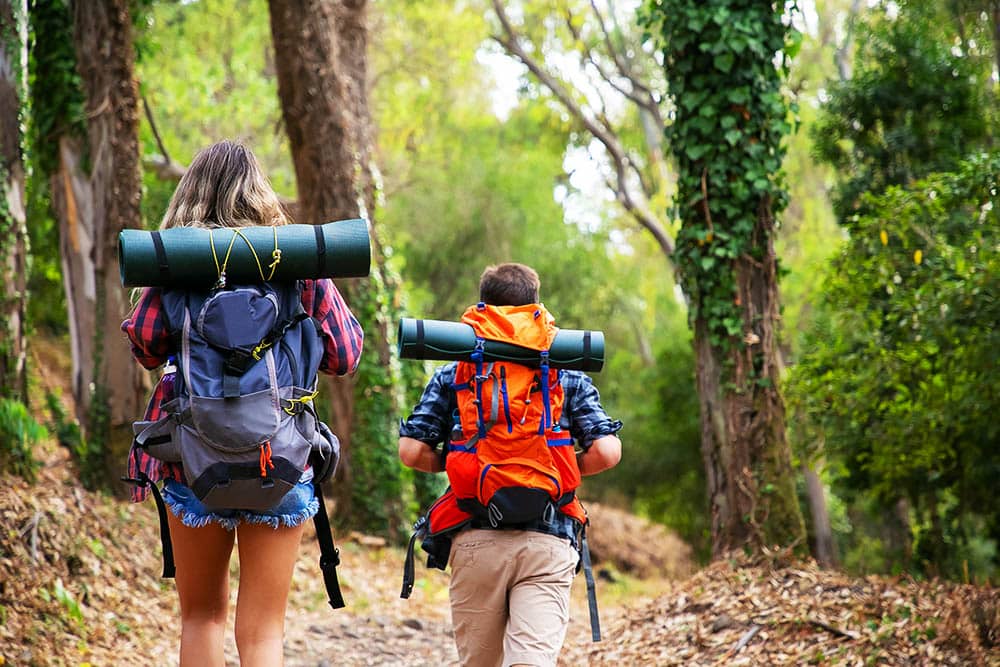Camping is often seen as a way to escape the hustle and bustle of everyday life and connect with nature. In recent years, the idea of unplugging and getting away from technology has become increasingly popular, with more and more people choosing to spend their vacations in the great outdoors. Camping is the perfect way to do this, and with its many benefits, it’s no wonder that it has become the ultimate getaway.
The Benefits of Camping
Going camping offers a number of benefits, both physically and mentally. Here are some of the main advantages of ditching the city and heading out into the wilderness:
Getting Away from Technology
In today’s world, it’s almost impossible to escape technology. We’re constantly glued to our phones, laptops, and other devices, which can cause stress and anxiety. Camping allows us to disconnect from technology and focus on the present moment, which can help us feel more relaxed and rejuvenated.
Reducing Stress
Spending time in nature has been shown to reduce stress levels. When we’re surrounded by the sights and sounds of nature, our bodies produce less cortisol, a hormone that’s associated with stress.
Improving Cognitive Function
Being in nature has also been shown to improve cognitive function. Studies have found that spending time outside can improve memory, attention span, and creativity.
Getting Exercise
Camping often involves physical activities like hiking, swimming, and kayaking. These activities provide an opportunity to get some exercise and stay active.
Eating Healthier
When camping, many people choose to cook their own meals over a campfire or on a camping stove. This often leads to healthier eating habits, as people tend to choose fresh, whole foods over processed snacks and meals.
Choosing the Right Campsite
Choosing the right campsite can make or break your camping experience. Here are some things to consider when picking a campsite:
Your Preferred Type of Camping
Before you start looking for campsites, decide what type of camping you prefer. Do you want to stay in a fully equipped RV park or rough it in a primitive campsite? The answer to this question will determine what campsites you should be looking for.
Location
Consider the location of the campsite. Do you want to be right on the water or in the mountains? Do you want to be close to hiking trails or away from other campers? Make sure the campsite you choose fits your preferences.
Amenities
If you’re camping in an RV, you might want a campsite with full hookups. If you’re tent camping, you might want a campsite with a fire ring and picnic table. Consider what amenities you need to feel comfortable during your camping trip.
Availability
Finally, consider the availability of the campsite. Some popular campsites can be reserved months in advance, so make sure you plan ahead if you want to secure a spot at a specific campsite.
What to Pack for Your Camping Trip
Packing for a camping trip can be overwhelming, especially if you’re new to camping. Here are some essentials you’ll want to have on hand:
Tent
If you’re tent camping, make sure you have a tent that’s appropriate for the weather conditions you’ll be facing. Make sure the tent is big enough for everyone in your group and has adequate ventilation.
Sleeping Bag and Pad
Make sure you have a sleeping bag that’s appropriate for the weather conditions, as well as a sleeping pad to cushion your body from the ground.
Cooking Supplies
If you plan on cooking your own meals, make sure you have a camping stove or a way to start a fire. You’ll also need cooking utensils and pots and pans.
Food and Water
Pack plenty of food and water for your trip. Make sure to bring food that won’t spoil easily and is easy to prepare.
Clothing
Bring plenty of layers and clothing appropriate for the weather conditions. Make sure to pack rain gear and extra socks.
Personal Items
Don’t forget to pack personal items like sunscreen, insect repellent, and a first aid kit.
Camping Tips and Advice
If you’re new to camping or haven’t been camping in a while, these tips and advice can help make your trip more enjoyable:
Practice Setting Up Your Tent Before You Go
Setting up a tent can be tricky, especially if you’re new to camping. Practice setting up your tent at home before you go on your trip, so you won’t have any surprises when you get to your campsite.
Leave No Trace
Make sure to follow Leave No Trace principles when camping. This means packing out all of your trash, using a designated campfire ring, and staying on designated trails.
Be Prepared for Wildlife
Depending on where you’re camping, you might encounter wildlife like bears, snakes, or insects. Make sure to research the wildlife in your area and take appropriate precautions.
Be Flexible
Camping can be unpredictable, so be prepared to be flexible. Weather conditions can change quickly, and equipment can fail. Make sure to have a backup plan in case things don’t go as planned.
The Bottom Line
Overall, camping is an excellent way to unplug and connect with nature. It offers a number of physical and mental benefits, and with some planning and preparation, it can be an enjoyable and rewarding experience. So pack up your tent, grab some food and water, and get ready to enjoy the great outdoors.
